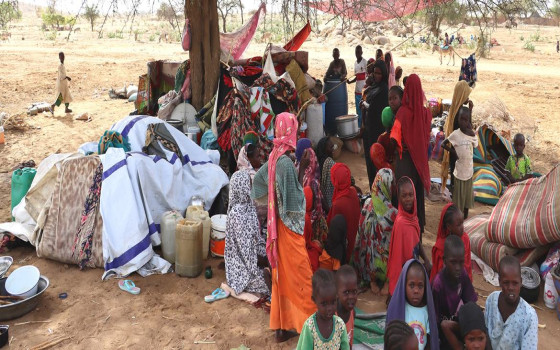
International organizations: The ongoing conflict in Sudan for nearly two years has caused enormous suffering and turned parts of the country into hell

- Europe and Arabs
- Thursday , 27 February 2025 10:42 AM GMT
Khartoum - New York: Europe and the Arabs
A UN official said that the ongoing conflict in Sudan for nearly two years has caused enormous suffering and turned parts of the country into hell, stressing that the people of Sudan deserve better from their leaders and the international community, according to the UN daily news bulletin.
In her briefing to the Security Council meeting to discuss the situation in Sudan, Edem Wosorno, Director of the Operations and Advocacy Division at the United Nations Office for the Coordination of Humanitarian Affairs, recalled the humanitarian dimensions of this crisis, including the displacement of more than 12 million people, including 3.4 million who fled across Sudan's borders, and the suffering of more than half of the country - 24.6 million people - from severe hunger.
Wosorno focused on the "worrying developments" in North Darfur, including the Zamzam camp for displaced persons, and in Khartoum and the south of the country.
“In North Darfur, eight months after the Security Council adopted resolution 2736, civilians continue to come under attack. Violence has escalated in and around the Zamzam camp for internally displaced persons – estimated to be hosting hundreds of thousands of civilians – and famine conditions have been confirmed,” she said.
She warned that satellite imagery confirms the use of heavy weapons in and around Zamzam camp in recent weeks, and the destruction of market facilities inside the camp. “Terrified civilians, including humanitarian workers, were unable to leave the area when fighting intensified,” she added.
The UN official explained that civilians continue to be directly affected by the ongoing heavy fighting in parts of Khartoum, noting that the UN Human Rights Office has verified reports of summary executions of civilians in areas that have changed hands.
She said: “We remain deeply concerned about the grave risks faced by local responders and community volunteers, in Khartoum and elsewhere.” She also noted that in the south of the country, there are reports of fighting spreading to new areas in North and South Kordofan, posing further risks to civilians and complicating the movement of humanitarian workers and supplies, stressing that “this must end.”
The OCHA official referred to the two humanitarian appeals for 2025 launched last week by Under-Secretary-General for Humanitarian Affairs Tom Fletcher and High Commissioner for Refugees Filippo Grandi, which seek $6 billion to support nearly 21 million people in Sudan, and up to five million others, most of them refugees in neighboring countries.
She appealed to the international community and members of the Security Council, “to spare no effort in trying to alleviate this crisis.”
She presented the Council with three main requests, the first of which is the protection of civilians, calling on the Security Council and all member states with influence to take immediate action to ensure that all actors comply with international humanitarian law and protect civilians and the infrastructure and services on which they depend.
The second request is access, adding that "there is a need for real implementation of repeated commitments to facilitate and enable unhindered humanitarian access to civilians in need."
Wusorno said that the third request is "funding. As we have said, the scale of needs in Sudan is unprecedented and requires an unprecedented mobilization of international support, including flexible funding."
The UN official concluded by saying: "Now more than ever, the people of Sudan need your action."
For his part, Ramtane Lamamra, the Personal Envoy of the Secretary-General of the United Nations for Sudan, stressed the need to redouble and coordinate efforts with the aim of reaching a peaceful solution that takes into account Sudan's sovereignty, independence and territorial integrity, and puts an end to the largest humanitarian crisis in the world.
Lamamra stressed that the solution must be political, calling for reliance on wisdom and the ability to overcome the reasons that drove the two parties to the conflict to war. He stressed that the Sudanese people are the sovereign and decision-makers regarding their future. In an extensive interview with UN News in New York, the UN official addressed the deteriorating situation in Sudan and the challenges facing peace efforts, noting that he is doing his utmost to convince the combatants and decision-makers that the only solution is the one that will result from their common political will.
Lamamra stressed the need to give the protection of civilians in Sudan the highest priority, renewing the UN Secretary-General’s call for a cessation of hostilities during the month of Ramadan.
Ramtane Lamamra called on the Sudanese to learn from past experiences, saying that the ongoing moves to reach a solution must be made in the context of respecting Sudan’s sovereignty, independence and unity - its people and its territory. He continued, saying:
“I believe that this is an essential matter that cannot be doubted. As for the United Nations - and as for me personally - I will continue to repeat and insist on this point because it is essential, because we want to emerge from this ordeal with a strong and unified Sudan, and with a Sudan that learns from its contemporary historical experiences and takes the necessary decisions so that the mistakes that may have caused wars in the recent past, including the current war, are not repeated.” Aid to Zamzam camp suspended
The World Food Programme said in a statement on Wednesday that it had been forced to temporarily suspend the distribution of life-saving food and nutrition assistance in the famine-hit Zamzam camp due to heavy fighting. The programme said the escalating violence in and around the camp had left its partners with no choice but to evacuate staff for their own safety.
“Without immediate assistance, thousands of desperate families in Zamzam could starve to death in the coming weeks,” said Laurent Bukera, WFP’s regional director for East Africa and acting country director for Sudan.
Famine was confirmed in Zamzam camp last August. WFP said it had managed to move only one convoy of humanitarian supplies into the camp since then, despite repeated attempts


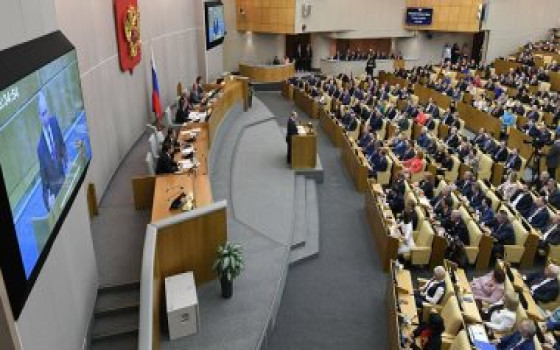

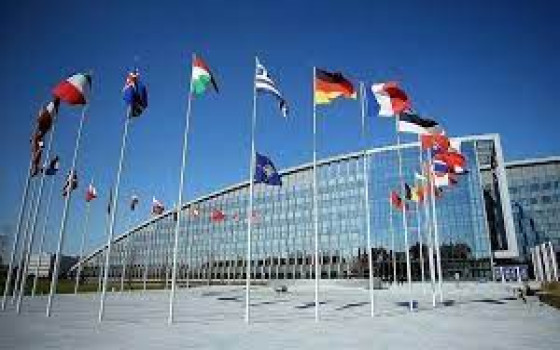
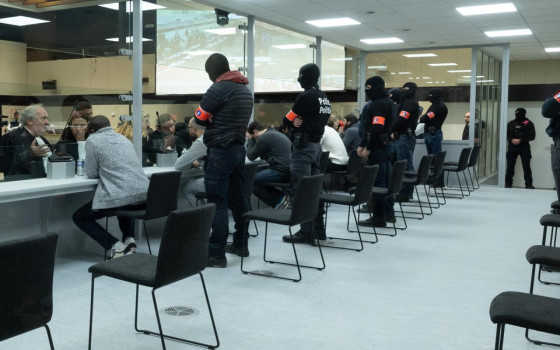

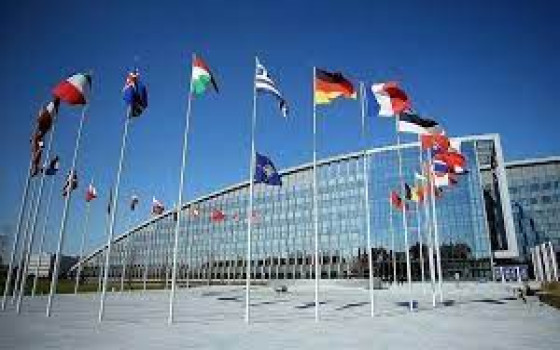
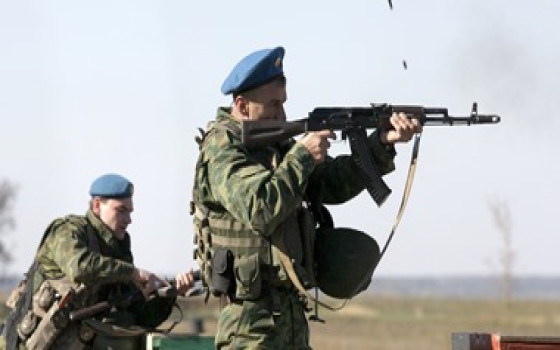
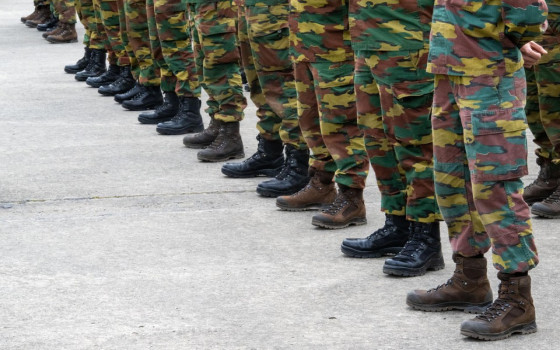


No Comments Found